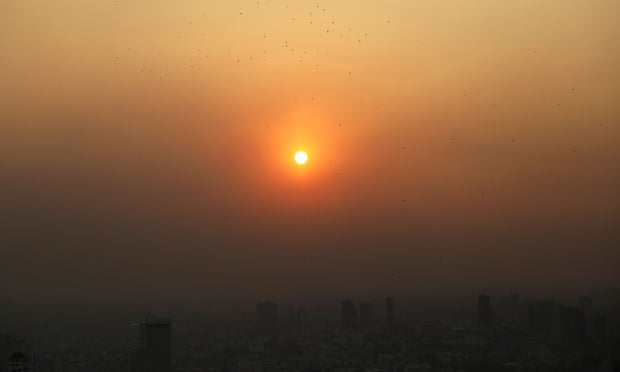Thai capital has been shrouded in murky haze for weeks, forcing residents to don masks and sparking criticism of government
Toxic smog forced Bangkok authorities to issue an unprecedented order to shut nearly 450 schools on Wednesday as authorities struggled to manage a pollution crisis that has stirred widespread concern.
The Thai capital has been shrouded in murky haze for weeks, forcing residents to don masks and sparking social media criticism of the uneven response by the government.
Reasons given for the lingering pall include exhaust from traffic, unfettered construction, the burning of crop stubble, and pollution from factories getting trapped in the city.
Authorities have seeded clouds to provoke rain, sprayed overpasses with water to catch micro-pollutants and even asked people not to burn incense sticks and paper during Chinese new year celebrations.
The measures so far have provoked derision from many Bangkok residents, while stocks of pollution masks have run out in many shops.
But on Wednesday the Bangkok Metropolitan Administration stepped up its health warnings, ordering all 437 city-controlled public schools to close from lunchtime until Friday, while designating 1,500 square kilometres (580 square miles) of the city a “control area”.
“The situation will be bad until February 3 to 4, so I decided to close schools,” said Bangkok governor Aswin Kwanmuang, adding he hoped the move would also empty the road of cars on the school run.

Three to four of the city’s districts were “severely hit with smog”, he added.
Fleets of drones are set to be deployed to disperse sugary liquid solution to help clear the air of microscopic particles. It is not clear how effective that will be given the scale of the smog cloaking the city.
Aswin also said city hall may soon issue a warning against exercising in parks.
Air Visual, an independent online air quality index (AQI) monitor, on Thursday pegged Bangkok at the “unhealthy” level of 171, up from 156 mid-month.
The measurements are higher than some cities in China but well below the Indian capital New Delhi.
Greenpeace Thailand country director Tara Buakamsri said the levels in Bangkok were the worst in “at least a year”.

